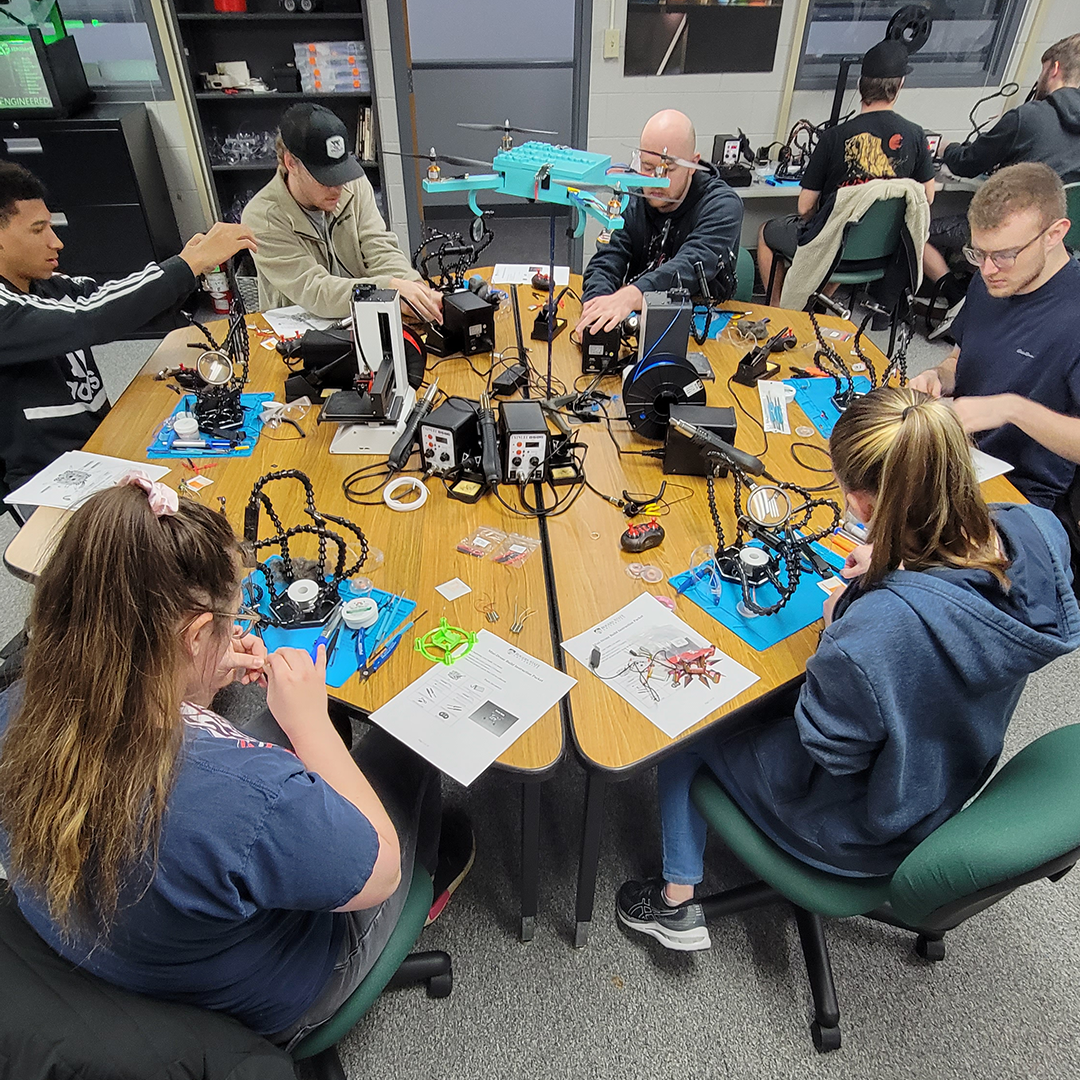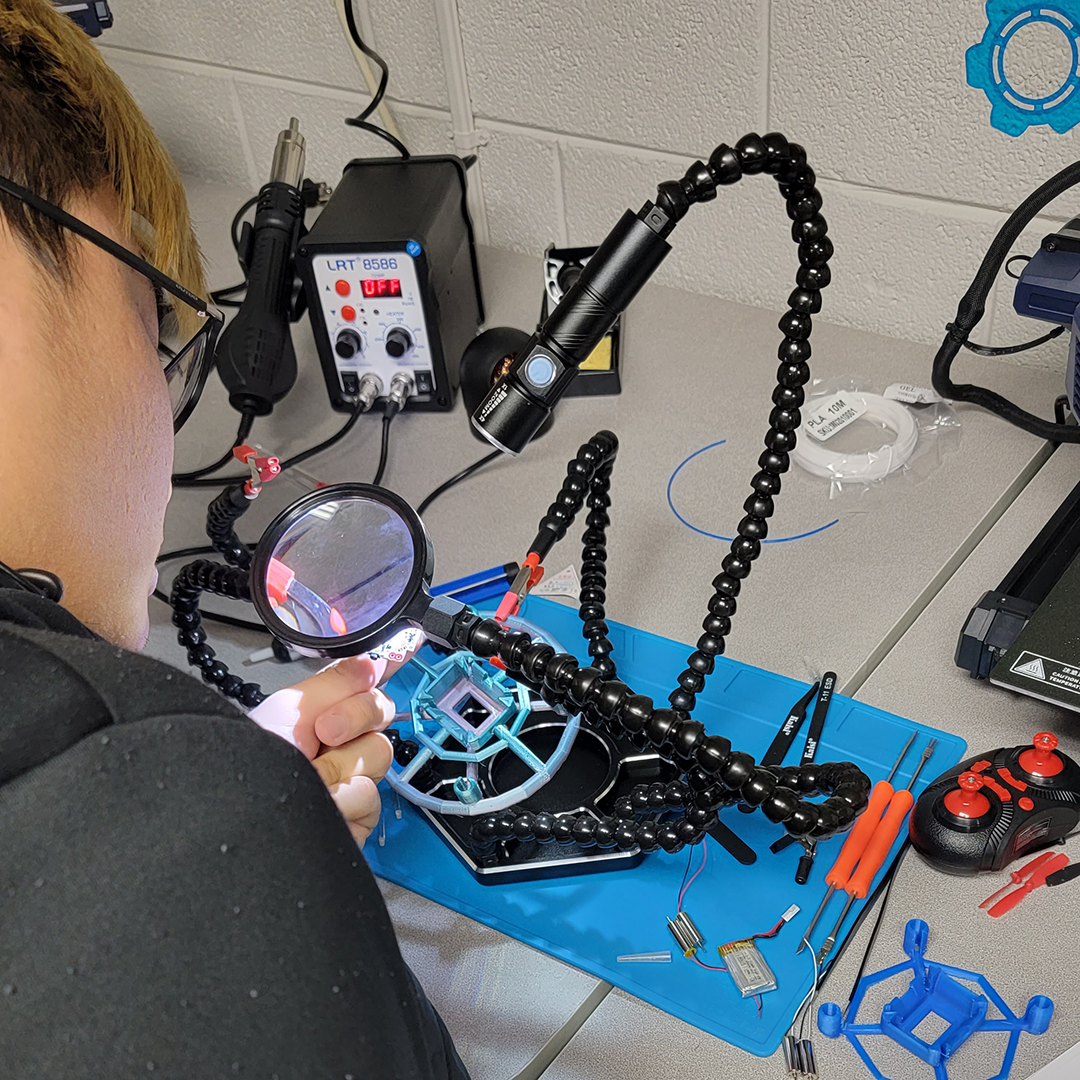Two dozen Rogers State University students are scheduled to graduate this spring as the first in the state to earn an Oklahoma State Regents for Higher Education (OSRHE)-approved micro-credential as a drone pilot.
As the first to earn this OSRHE-approved recognition, these students will graduate with an increased mastery in a particular area of STEM, giving them specialized skills and an increased viability as they enter the workforce.
“As a state, in relation to workforce development, there has been a push from the Oklahoma State Regents for Higher Education for universities to provide short, focused credentials designed to provide in-demand skills. This has taken the form of micro-credentials,” said R. Curtis Sparling, RSU Technology and Justice Studies interim department head and assistant professor. “These (micro-credentials) can be for credit classes or non-credit classes. For my particular department, I’ve opted for the for-credit opportunities, including micro-credentials as a drone pilot.
“OSRHE requires there should nine credit hours or less (for a micro-credential),” he said. “Luckily, being in the department that I am, there are many opportunities for individuals to come in and earn six to nine college credit hours and go in and enter the workforce with these micro-credentials.”
To incentivize universities to write and offer micro-credentials, OSRHE has also made available some scholarship opportunities – up to $30,000 in scholarship opportunities at RSU, Sparling estimates.
“Within my department, I’ve written these (micro-credentials) embedded within my degree programs, and that’s because they naturally coalesce around that kind of knowledge,” he said. “The drone pilot (micro-credential) was one of eight that I wrote.”
Sparling said 24 of his students will graduate with a micro-credential as a drone pilot – the first of their kind to be OSRHE-approved – which serves to broaden their own experience and enhances their qualifications for consideration by prospective employers.
“This (micro-credential) truly is one of those additional skillsets added to a student’s education and one which gives them more to offer an employer,” he said.
Students who are to be awarded the drone pilot micro-credential will also receive a “challenge coin” at commencement – one designed by Sparling’s students and to be 3D printed in the university’s colors.
“I tasked my students to come up with a ‘challenge coin.’ It will be double-sided, with Hunter (RSU’s mascot) on one side and a drone on the other side,” he said. “They really let their imagination fly.”
Over the past nine years, critical STEM disciplines have increased over 50% and for-credit micro-credentials provide alternative learning pathways that are directly aligned with skill requirements identified by northeast Oklahoma businesses and industries.
RSU is at the forefront of these efforts by providing real-world application of these critical skills in a hands-on learning environment.
“I think it’s an opportunity for learners to, at the micro-level, expand what they’re able to present to the workforce upon graduation,” he said. “Being technology-centric, it’s easier for my department to offer those kind of micro-credentials.”
In addition to offering micro-credentials, RSU is part of the FAA’s Unmanned Aircraft Systems Collegiate Training Initiative (UAS-CTI). This is a program designed by the FAA to recognize institutions that prepare students for careers in UAS or drones and RSU has been accepted into the UAS-CTI.
This semester, Sparling’s class has completed numerous STEM community outreach events, supporting nearly 2,000 middle school and high school students.
For more information about micro-credentials available through RSU’s Department of Technology and Justice Studies, visit www.rsu.edu/TJSmicro


